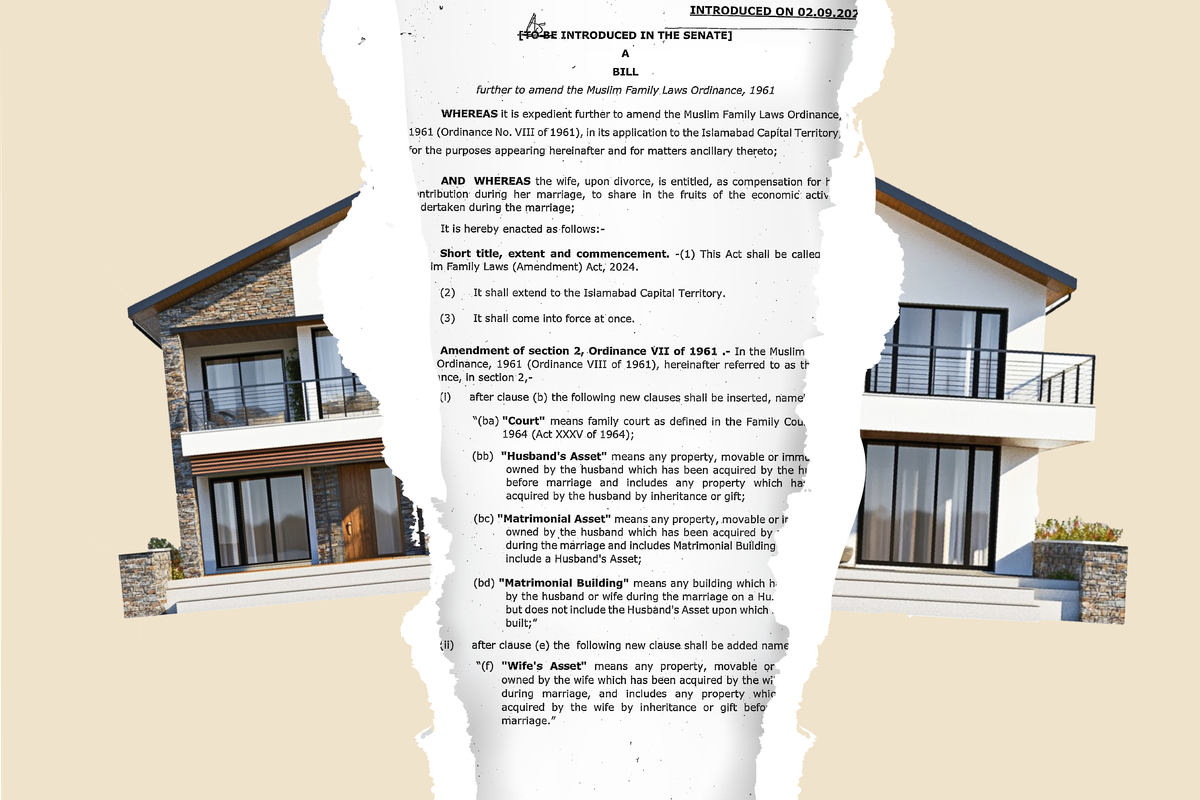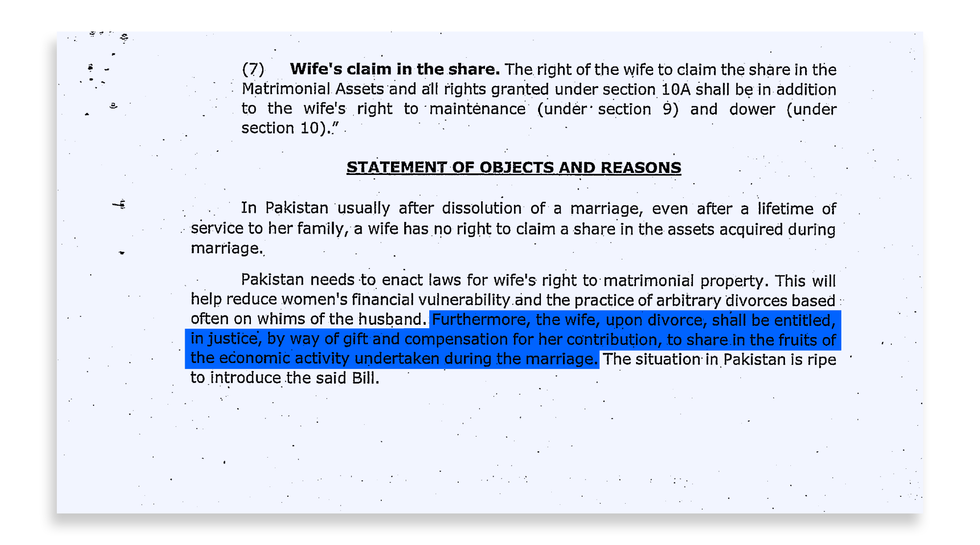50/50: New law could give divorced Pakistani women share in assets
Bill introduced in Senate undergoing scrutiny by country's Council of Islamic Ideology

Sidrah Roghay
Senior Producer
Sidrah Roghay is a storyteller at heart, with over a decade of experience in newsrooms across Pakistan, the US, and Turkey

Nukta
Law only applies to assets acquired from the date of marriage until it ends.
Recognizes homemaking as paid work
Marriage is a partnership or so they say. But when a woman in Pakistan gets a divorce she finds herself stone broke. A proposed law could change that.
The bill introduced in the Senate – the upper house of parliament – promises women half of the share in assets in case of divorce.
The assets include anything that the husband built or acquired during the marriage, but leaves out inheritance, said Huma Ejaz Zaman, a legal expert who helped with the draft.
"I am overwhelmed with the misery and the plight of the women, when they have children, when they divorce, literally after 25 years of marriage they can be thrown out with nothing to their name," she said in a Zoom interview with Nukta.
Any settlement is at the "whim and fancy" of the man, she said.
The law does not protect women, she added.
"All she is entitled to is haq mehar (a gift given to a woman at the time of marriage) and a year of maintenance," said Zaman, who is a senior partner at the law firm Mandviwalla & Zafar.
Recognizing homemaking as paid work
The law goes a step further and reinforces that a stay-at-home wife should be paid for her services.
"Even if you are a homemaker as a spouse you have a right. The assumption is that raising children is your duty. These are earned wages. [The law] in the UK, US, Australia, and even India [recognizes this]," Zaman said.
The bill is currently with the Council of Islamic Ideology, a constitutional body that ensures Pakistani law adheres to Muslim law.
There has been criticism in some quarters. Some say the law is anti-Islam, others say it would encourage divorces.
Zaman shuns both notions.
Islam calls for fair settlement in divorce and the law just builds on it, she said.
If anything, it discourages divorce and holds the man responsible, she added.

Women suffer in divorces
Sana*, a 37-year-old single mother, said that the law could provide divorced women a springboard to restart their lives.
After five years of marriage and a daughter, she filed for divorce.
The court case dragged on for years.
Eventually, she dropped her claim for maintenance, so that she could get complete custody for her child.
"My divorce was ugly. It shouldn't have had to be. This law could be a gamechanger," she told Nukta, requesting anonymity.
Ayesha*, 36, filed for divorce after three-and-a-half years of marriage.
"Because I married a barrister, he dragged me into a lot of legalities. I was dragged to court, despite having my right to divorce," she said, speaking to Nukta by phone.
In Pakistan, most women sign off their right to divorce in their marriage certificate. If the marriage ends, they have to give up several rights.
"In the end, I got my mehar and the furniture my parents gave to me as dowry," she added, requesting anonymity.
What is the law?
The right to share in marital property upon divorce should be given to women in lieu of their contributions (earned wages) from the day the couple gets married.
It is only applicable to assets acquired from the date of marriage.
Any assets made before such date are excluded. It excludes any assets made before marriage, inheritance, or any gifts made to either.







Comments
See what people are discussing